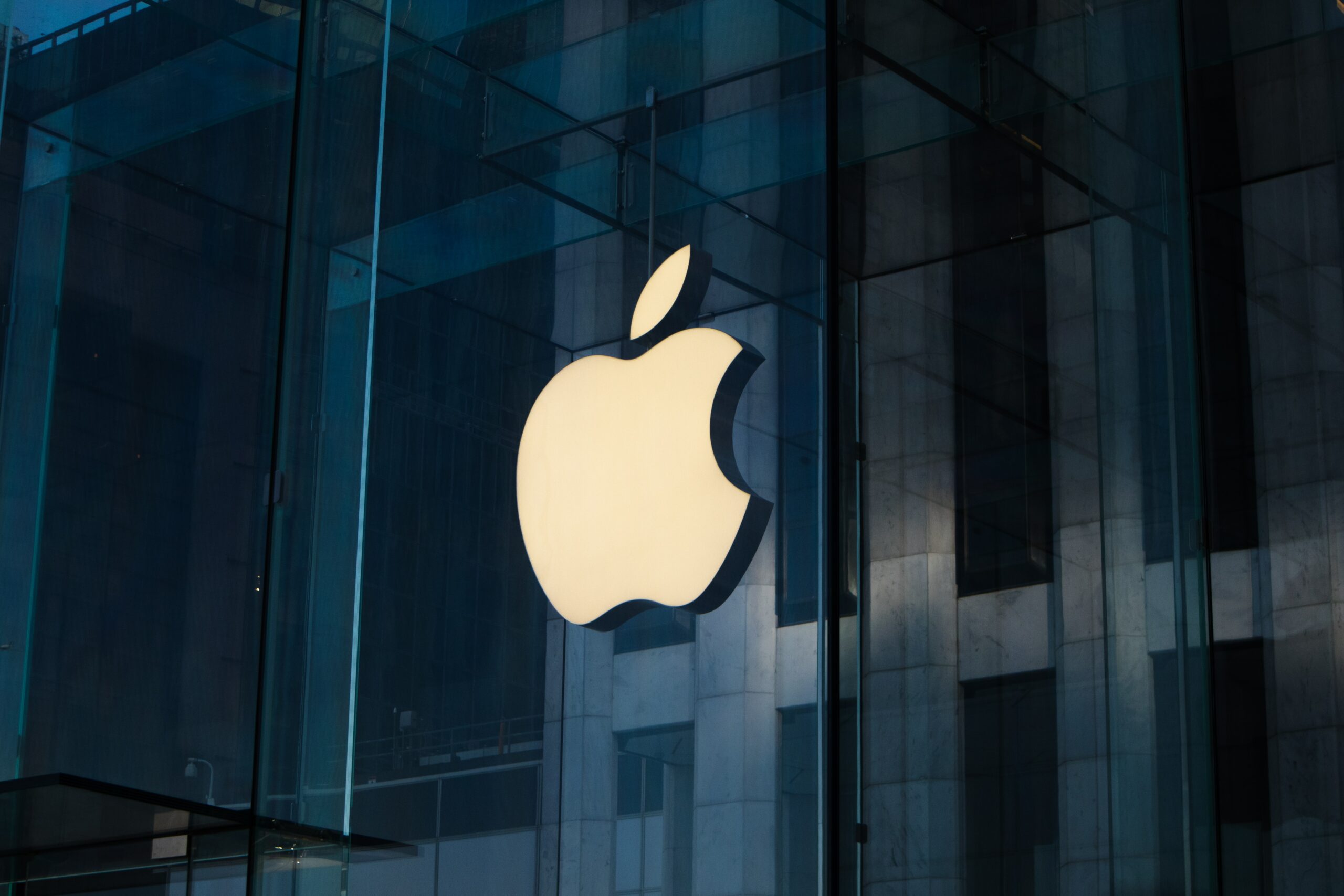
Photo by Laurenz Heymann on Unsplash
Apple Shares Drop to Lowest in 7 Weeks After Barclays Downgrade
January 3, 2024
On Tuesday, Apple fell by almost 3.6% to a low that has not been experienced in seven weeks after Barclays downgraded the shares of the leading global tech company due to concerns that demand for its devices will still be fragile in 2024, reports Reuters.
Barclays lowered the stock from “neutral” to “underweight” and reduced its 12-month price goal by $1 to $160.
According to LSEG data, Barclays is the second brokerage to issue a “sell” rating on the stock, as a result of the company having the highest number of negative recommendations in at least two years.
Apple has been coming to terms with the downturn in demand since the early parts of last year, and the company forecasted sales for the holiday quarter to come in lower than Wall Street’s estimates. It has also had a tough time in China, which has been a big concern after local rival Huawei was resurrected.
In a client note on Tuesday, Barclays analyst Tim Long emphasized concerns about the “lackluster” sales of the iPhone 15. He predicts that this fragile state will follow through for the upcoming sales of the iPhone 16 and Apple’s hardware sales in general, according to CNBC.
Barclays also warned about the growing risks for Apple’s services business, which has become prominent in countries such as the United States over app store practices.
According to Long, analysts and investors have identified certain weaknesses in iPhone sales in China since last October. In his note, he wrote, “We are still picking up weakness on iPhone volumes and mix, as well as a lack of bounce-back in Macs, iPads and wearables.”
Long forecasts that Apple’s profitable business will also experience a downturn in growth as a result of regulatory scrutiny, which will be a concern to investors who are concerned about profit margins.
According to CNBC, the gross margin in Apple’s services business is around twice as much as the margin Apple makes on all of its hardware products. Apple CEO Tim Cook emphasized “better-than-expected” growth in that unit on an earlier investor call.
However, looking at the long term, the brokerage doesn’t necessarily believe that growth is reliable.
Referring to the payments Google makes to Apple to keep its default search status, Long mentioned in his note, “In 2024, we should get an initial determination on the Google TAC, and some app store investigations could intensify.”
Recent News
Saudi Aramco Launches $12 Billion Secondary Share Sale
Saudi Aramco, the world’s largest oil company by daily crude production and market capitalization, launched a substantial secondary public offering on Sunday, aiming to raise around $12 billion. This move comes as part of the Saudi Aramco’s strategy to generate additional funds, following its record-breaking initial public offering in 2019, which raised $29.4 billion by selling 1.5% of the company.
Nvidia Unveils Cutting-Edge AI Chips to Assert Market Dominance
Nvidia has once again made headlines with the announcement of its next generation of artificial intelligence processors. At the Computex conference in Taipei, CEO Jensen Huang unveiled the “Rubin” processors, a successor to the “Blackwell” chips for data centers that were announced in March. This surprise reveal comes even before the Blackwell chips have begun shipping to customers, signaling Nvidia’s aggressive strategy to dominate the AI processor market.
Rubio’s Coastal Grill Shutters 13 San Diego Locations
Rubio’s Coastal Grill has announced the closure of 13 locations in San Diego by the end of Friday. The closures are part of a broader strategy to address the rising operational costs in California.
Boeing’s First Astronaut Flight Postponed Due to Last-Minute Computer Glitch
In a turn of events, Boeing’s highly anticipated first astronaut flight was called off at the last minute due to a computer glitch. This setback adds to a series of delays that have plagued the program over the years. The launch, which was scheduled to take place at Cape Canaveral Space Force Station, was intended to send NASA astronauts Butch Wilmore and Suni Williams to space aboard Boeing’s Starliner capsule.
